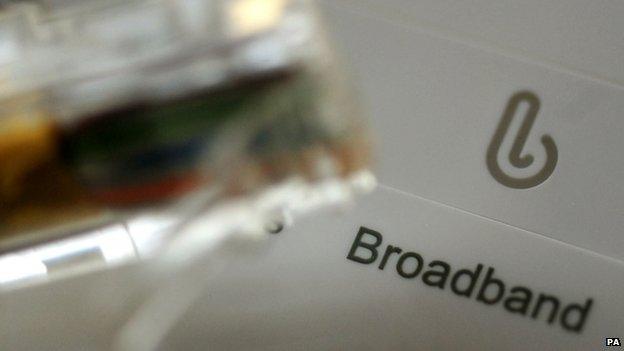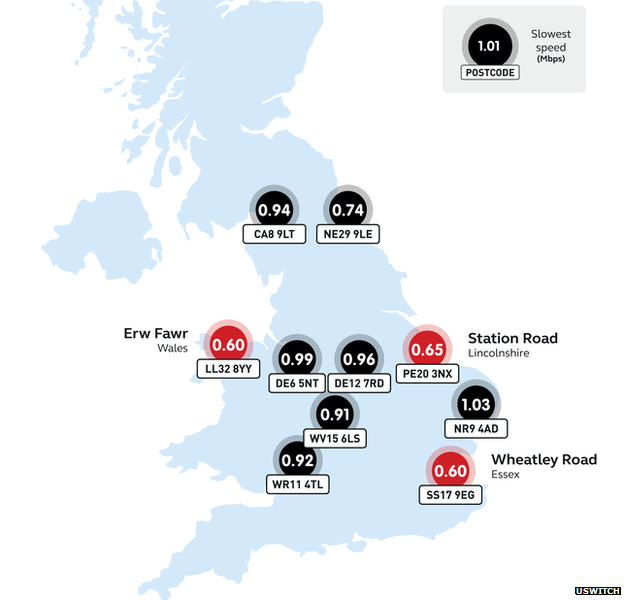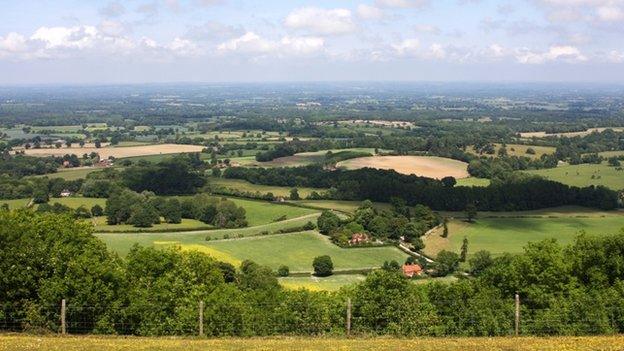Roads in Essex and Wales have slowest broadband speeds
- Published

Two streets, one in Wales and another in Essex, have been found to have the slowest broadband speeds in the UK, according to a new report.
Wheatley Road in Stanford-Le-Hope, Essex, and Erw Fawr in Henryd, north Wales, both had an average download speed of 0.60 megabits per second.
That is 30 times slower than the UK national average, according to the comparison site which did the research.
Loundes Road in Unstone, Derbyshire had the fastest speed according to uSwitch.
Spencer Kelly from BBC Click explains why your broadband speeds may be slow
Its research found that 15% of UK residents have access to a broadband connection of 30Mbps or higher, the speed at which the connection is described as "superfast" by the EU.

Communications watchdog Ofcom recently reported that one in four UK residential fixed broadband connections was "superfast".
They say the proportion of superfast connections rose from 5% in November 2011 to 25% in November last year.
Average superfast connection speeds have also continued to rise, Ofcom said, reaching 47.0Mbps by November 2013, an increase of 47% since May 2010.
Test your broadband speed with BBC iPlayer
According to the report from uSwitch, people on the two slowest streets would have to wait more than 15 hours to download an HD-quality film.
Meanwhile, those on Loundes Road, the fastest, could download the same movie in less than 10 minutes.
The research from uSwitch is based on almost 1.9m speed tests run by broadband users on the comparison website over a six-month period.
In order for a street to qualify for inclusion in the lists above, tests from at least 30 unique IP addresses were required.

In response to the survey, an Ofcom spokesperson said: "Ofcom's own research shows growth in superfast broadband and a rise in average speeds which is testament to the investment in the sector. But the benefits are not shared evenly across the UK.
"There is more work needed to deliver wider availability of broadband and superfast broadband, particularly in rural communities but also in some locations within cities to enable wider access to fast internet."
Earlier this year the government announced how £250m set aside to improve broadband services in remote areas would be spent.
The money will be divided between local councils and each will have a month to work out how they will spend it to ensure superfast broadband is available to the majority of homes.
The government has been criticised for how it has handled the rollout so far.
Follow @BBCNewsbeat, external on Twitter